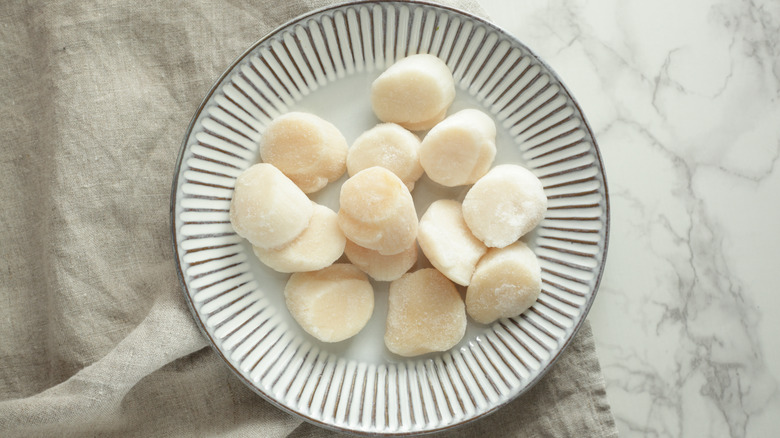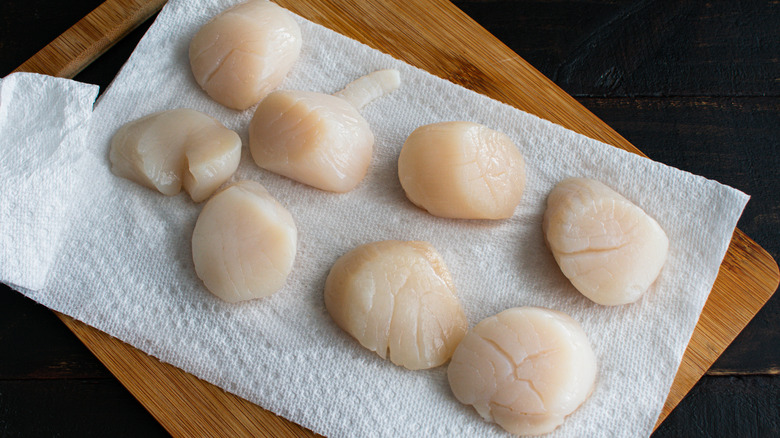The Biggest Mistake To Avoid When Cooking Frozen Scallops
As with many dishes, and seafood in particular, it's always better to cook with fresh scallops. However, unless you live right by the ocean and have a boat or access to one, it's not always that easy to source them when you want them, much less at an affordable price. Luckily, it's perfectly okay to buy frozen scallops, at least when they've been frozen or flash frozen just after harvesting, at peak freshness, and come from a reputable source.
You do need to store and thaw your frozen scallops properly, but there is one more mistake to avoid when you're cooking them, and that is to make sure that they are fully dry first. According to Executive Chef Kory Foltz of Sunseeker Resort in Charlotte Harbor, "Cooking methods still stand whether it is a frozen scallop or a fresh [one], although when cooking with frozen they need to be fully thawed out and as dry as possible or they won't hold their moisture when cooking."
How to properly dry your scallops
To dry your frozen scallops after thawing them out (preferably overnight in the refrigerator, though a cold water bath will also do if you're short on time), simply use a paper towel to pat each scallop dry. Chef Jeffrey McInnis of Root & Bone Miami and Stiltsville Fish Bar, and a contestant on "Top Chef" with three James Beard nominations, likes to give scallops that have been completely thawed out "a little push (not too hard/don't smash or break them) and get some of that frozen water out." As he explains, "Chances are, if they were frozen, then they have most likely absorbed some water inside of them and are holding on to it." And "excess water will prevent a good sear," notes Chef Nicole Brisson, Executive Chef at Brezza & Bar Zazu in Las Vegas. And a good sear on a scallop is simply sublime.
You can also leave the scallops uncovered in your refrigerator for a bit after patting them dry — the dry air in your refrigerator will help soak up even more moisture from the scallops. And if you're working with "wet" scallops — scallops treated with the preservative sodium tripolyphosphate — you may also want to take the additional simple step of brining them before cooking for the best results.

